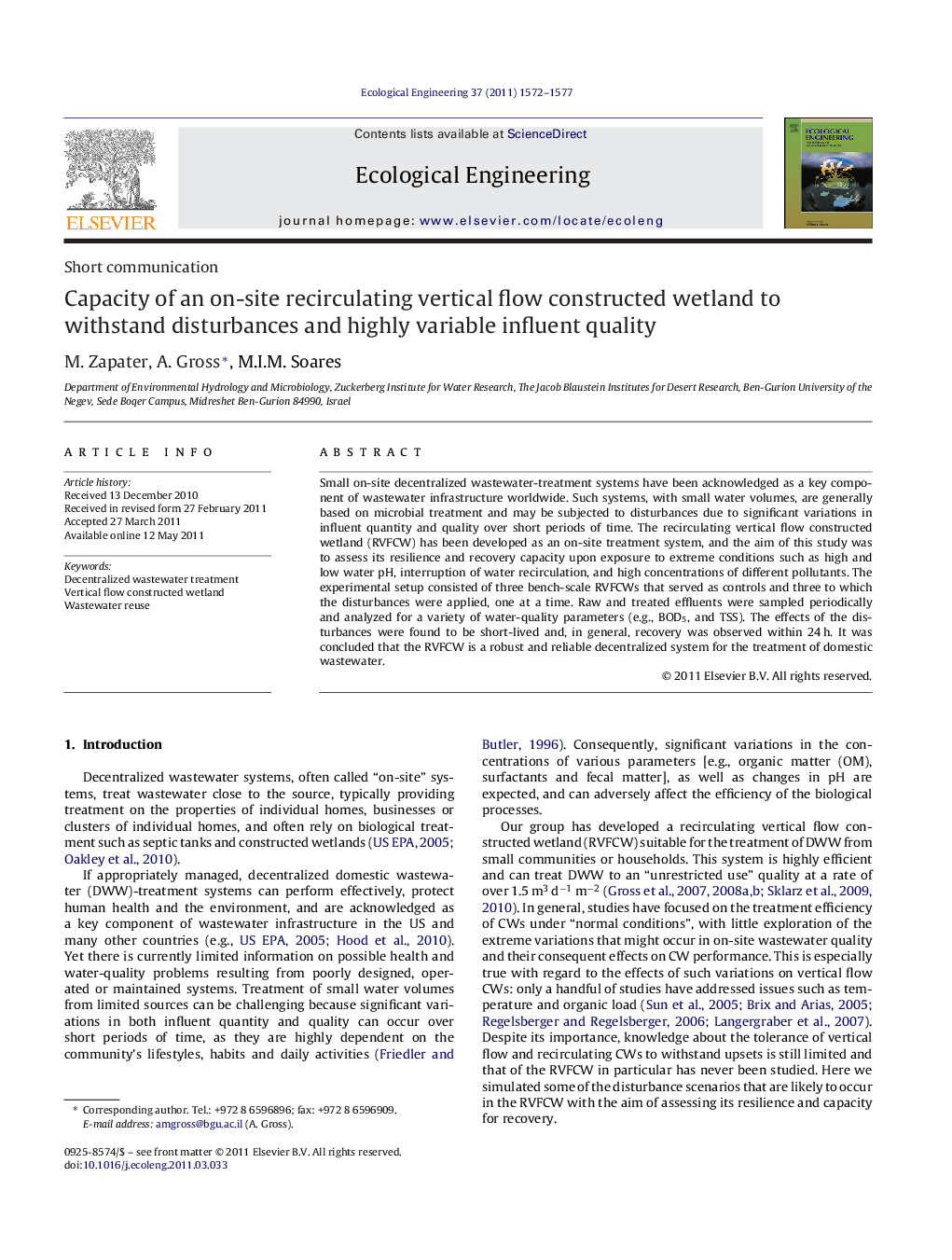| Article ID | Journal | Published Year | Pages | File Type |
|---|---|---|---|---|
| 4390280 | Ecological Engineering | 2011 | 6 Pages |
Small on-site decentralized wastewater-treatment systems have been acknowledged as a key component of wastewater infrastructure worldwide. Such systems, with small water volumes, are generally based on microbial treatment and may be subjected to disturbances due to significant variations in influent quantity and quality over short periods of time. The recirculating vertical flow constructed wetland (RVFCW) has been developed as an on-site treatment system, and the aim of this study was to assess its resilience and recovery capacity upon exposure to extreme conditions such as high and low water pH, interruption of water recirculation, and high concentrations of different pollutants. The experimental setup consisted of three bench-scale RVFCWs that served as controls and three to which the disturbances were applied, one at a time. Raw and treated effluents were sampled periodically and analyzed for a variety of water-quality parameters (e.g., BOD5, and TSS). The effects of the disturbances were found to be short-lived and, in general, recovery was observed within 24 h. It was concluded that the RVFCW is a robust and reliable decentralized system for the treatment of domestic wastewater.
